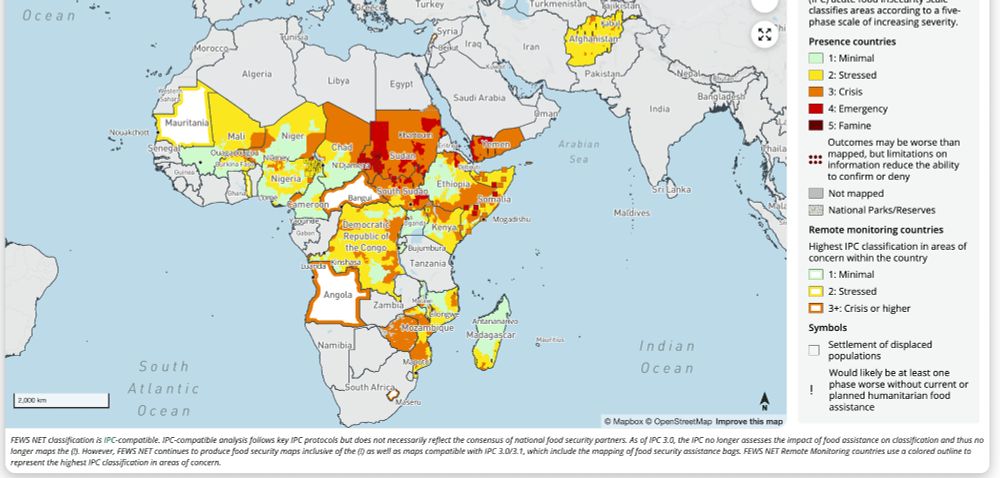
The continuous monitoring of acute food insecurity is critical if we are to understand the stability of food systems in our ever more turbulent world. Increasingly frequent conflict, climate, and price shocks make FEWS NET more important than ever

If we decide that we don't want to feed the world, we won't.
If we decide to let hungry people starve, they will.
www.sciencedirect.com/science/arti...

If we decide that we don't want to feed the world, we won't.
If we decide to let hungry people starve, they will.
www.sciencedirect.com/science/arti...
www.climate.gov/news-feature...


www.climate.gov/news-feature...



SSTs are only weakly cool but the east-west gradient is forcing the typical teleconnection in the Horn of Africa and is forecast to do so in Central Asia




SSTs are only weakly cool but the east-west gradient is forcing the typical teleconnection in the Horn of Africa and is forecast to do so in Central Asia
Apply for a two-year postdoc to work with me, Deepak Ray,
and Corey Lesk!
Applications due March 11th Feel free to email me with questions: ael.gsfc.nasa.gov/earth/hydrol...
application: sites.google.com/umn.edu/ione...

Apply for a two-year postdoc to work with me, Deepak Ray,
and Corey Lesk!
Applications due March 11th Feel free to email me with questions: ael.gsfc.nasa.gov/earth/hydrol...
application: sites.google.com/umn.edu/ione...
FEWS NET estimates that much of the region is already experience crisis levels of acute food insecurity
fews.net/southern-afr...

FEWS NET estimates that much of the region is already experience crisis levels of acute food insecurity
fews.net/southern-afr...
Climate stress indicators continue to be mixed. The outcome of the maize season there is still uncertain and may depend on the weather in the coming weeks

Climate stress indicators continue to be mixed. The outcome of the maize season there is still uncertain and may depend on the weather in the coming weeks
Based on @HarvestProgram's monitoring, heat and drought stress is widespread



Based on @HarvestProgram's monitoring, heat and drought stress is widespread


Poor #maize yields in Central America + Southern Africa due to drought
With the positive IOD, flooding is a concern in the Horn of Africa
But #ElNiño may be good news in #Afghanistan, which has suffered from a multi-year drought



Poor #maize yields in Central America + Southern Africa due to drought
With the positive IOD, flooding is a concern in the Horn of Africa
But #ElNiño may be good news in #Afghanistan, which has suffered from a multi-year drought

